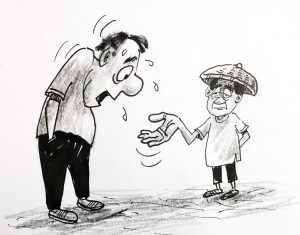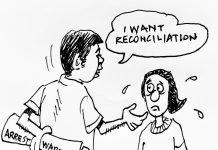Like a cancer, the pervasive culture of bribery in the Philippines infects everything from government operations to daily interactions between citizens and authorities, revealing itself in countless ways: from the high-profile criminals who evade justice by paying off law enforcement to the common practice of greasing palms in government offices to expedite services. Corruption is not just a minor inconvenience; it is a systemic issue that undermines the rule of law and perpetuates a cycle of dishonesty.
Look at the impunity enjoyed by those in power or those with financial means. High-profile criminality, from drug trafficking to large-scale corruption, continues unabated because perpetrators can simply pay their way out of trouble. Law enforcement, tasked with upholding justice, often finds itself compromised by bribes, turning a blind eye to illegal activities in exchange for quick cash. This not only demoralizes honest officers but also sends a dangerous message to the public: justice is for sale, and those with the means can bypass accountability. The result is a society where laws exist only for the poor and powerless, while the rich manipulate the system with impunity.
This obsession with money has also seeped into the political arena, particularly during elections. Vote-buying and electoral fraud have become disturbingly normalized, with candidates openly using their wealth to influence outcomes. For many voters, the immediate financial gain from selling their vote outweighs the long-term impact of electing corrupt leaders. This vicious cycle ensures that those in power remain unchallenged, as they continue to exploit their positions to amass wealth, which they then use to secure future elections. This endless loop of bribery and corruption not only undermines democratic processes but also stifles genuine political change, leaving the country trapped in a perpetual state of poor governance.
Beyond the high-stakes world of politics and crime, the culture of bribery trickles down into everyday life. Simple tasks like processing documents, obtaining permits, or accessing public services often involve some form of “facilitation fee” to get things moving faster. For many Filipinos, these bribes have become so commonplace that they are seen not as unethical but as a necessary part of dealing with bureaucratic red tape. This normalization of bribery further entrenches corruption into the fabric of society, making it increasingly difficult to root out. It creates an environment where those who refuse to participate in such practices are at a disadvantage, pressured to either adapt or be left behind.
The endemic nature of bribery in the Philippines reflects a deeper societal ailment—one rooted in desperation, lack of accountability, and the glorification of wealth over ethics. Combating this issue requires more than just anti-corruption laws or punitive measures; it demands a fundamental shift in societal values. It calls for a collective reckoning with the destructive impact of bribery on the nation’s future. Until Filipinos as a whole reject the allure of easy money and demand integrity from themselves and their leaders, this cancer will continue to spread, stifling progress and leaving the nation struggling to rise above its challenges.




